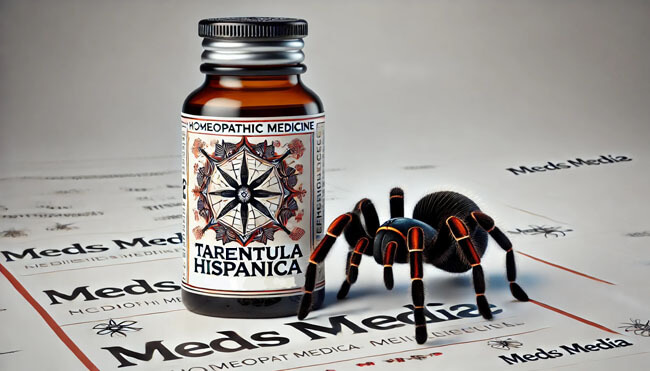
Bryonia Alba, a key remedy in homeopathy, is often used to treat conditions marked by dryness, inflammation, and pain, with a strong emphasis on rest and immobility. The Bryonia patient typically exhibits a personality defined by irritability, discomfort with movement, and a tendency to withdraw physically and emotionally. As a remedy, it resonates most with individuals of a robust constitution, often of a dark complexion and firm, lean build. Understanding the personality profile of Bryonia Alba helps homeopaths align treatment with both the physical symptoms and the mental and emotional state of the patient.
Mental and Emotional Characteristics
The mental state of a Bryonia patient is marked by irritability and a desire for solitude. They often wish to be left alone and become upset when disturbed. These individuals tend to fixate on business matters or practical concerns, which can be a sign of anxiety or worry about their responsibilities.
Key emotional traits include:
- Irritability and Sensitivity: Everything seems to annoy or disturb the Bryonia person, making them easily agitated by interruptions or changes in routine.
- Delirium and Fixation: During illness, they may experience delirium, often wanting to return home or continuously discussing business affairs, indicating a preoccupation with safety, security, or responsibility.
- Aversion to Social Interaction: Bryonia personalities prefer solitude and dislike social engagement, particularly during illness. They find comfort in being left alone to rest.
Physical Characteristics
Bryonia Alba’s action is particularly noticeable on the serous membranes, muscles, and mucous membranes, producing dry and painful symptoms. The general physical symptoms associated with Bryonia personality involve dryness, sharp pain, and a desire to avoid motion.
- Dryness: Dryness of mucous membranes is a hallmark, including dry mouth, parched lips, and a persistent thirst for large amounts of cold water.
- Pain: The characteristic pain is sharp and stitching, made worse by movement and improved by rest and pressure. These pains are often experienced in the chest, joints, and abdominal regions.
- Constipation: Hard, dry stools are a common complaint. This correlates with the overall dryness that defines the Bryonia constitution.
- Vertigo and Headaches: Bryonia individuals may experience dizziness or faintness when rising, along with a pressing, splitting headache, especially worse with any motion.
Behavioral Patterns
Bryonia patients tend to display a marked aversion to movement, whether physical or emotional. The need to remain still is a key feature of the personality, with any movement causing discomfort and exacerbating symptoms. This translates to behaviors such as:
- Avoiding Physical Activity: Movement intensifies the pain, so patients often lie still, avoiding any activity that might worsen their symptoms.
- Preference for Solitude: They prefer to be left alone, often lying quietly in one position. Social interaction or emotional engagement is avoided, as it increases their irritability.
- Desire for Rest: Patients will seek rest and immobility, finding comfort in lying down or applying pressure to the painful area to relieve discomfort.
Associated Diseases
The Bryonia Alba personality is commonly linked to several conditions where dryness, sharp pain, and inflammation are key characteristics. Some of the diseases associated with this remedy include:
- Respiratory Issues: Dry coughs, pleurisy, and pneumonia are common conditions where Bryonia is effective, especially when the cough is dry, painful, and worse from movement.
- Rheumatic Disorders: Joint pains, especially sharp and stitching, worse with movement, are typical in Bryonia patients. These individuals may suffer from swollen, painful joints and rheumatic fever.
- Gastrointestinal Complaints: Constipation with dry, hard stools, nausea, and a sensation of heaviness in the stomach after eating are often seen.
- Typhoid Fever: Gastro-hepatic complications and associated dryness, thirst, and pain mark Bryonia’s utility in fevers such as typhoid.
Miasmatic Personality of Bryonia Alba
In terms of miasmatic classification, Bryonia Alba is associated with the Psoric miasm. Psoric personalities are characterized by dryness, hypersensitivity, and an underlying sense of dissatisfaction or discomfort with their circumstances. In Bryonia patients, this manifests as:
- Irritation from Any Change: Any disturbance, whether physical movement or emotional interaction, causes significant discomfort.
- Strong Desire for Stability: Psoric individuals, particularly those of the Bryonia type, have a strong need for constancy and rest. Movement or instability exacerbates both their mental and physical symptoms.
The Psoric miasm also highlights the struggle between feeling better with rest and stability while any form of exertion or challenge worsens their condition. This miasmatic trait fits well with the Bryonia need for rest, solitude, and aversion to change.
Summary
The Bryonia Alba personality is defined by a profound aversion to movement and change, both physically and emotionally. Patients often seek isolation, rest, and immobility, finding comfort in these states as their pain and discomfort worsen with activity. Irritability, preoccupation with practical concerns, and dryness of the mucous membranes and serous membranes are key features. Bryonia is especially effective in treating conditions involving sharp, stitching pains, respiratory complaints, and gastrointestinal disturbances, making it a critical remedy in homeopathic practice for those with this specific personality and symptom profile.
Why Meds Media guides are different
We focus on clear, practical explanations of homeopathic and natural health topics so you can understand remedies, symptoms, and lifestyle changes in simple language.
Meds Media is an educational resource only. Always consult a qualified doctor or homeopathic practitioner before starting, stopping, or changing any treatment.
Similar Posts You may also like
Zincum Picricum Homeopathic Medicine & Personality | Uses, Benefits & Indications
Zincum Phosphoricum Homeopathic Medicine & Personality | Uses, Benefits & Indications
Zincum Iodatum Homeopathic Medicine & Personality | Uses, Benefits & Indications
Zincum Bromatum Homeopathic Medicine & Personality | Uses, Benefits & Indications
Zea Homeopathic Medicine & Personality | Uses, Benefits & Indications
Zincum Aceticum Homeopathic Medicine & Personality | Uses, Benefits & Indications
Zincum Cyanatum Homeopathic Medicine & Personality | Uses, Benefits & Indications
Zincum Muriaticum Homeopathic Medicine & Personality | Uses, Benefits & Indications
Zincum Oxydatum Homeopathic Medicine & Personality | Uses, Benefits & Indications
Zincum Sulphuricum Homeopathic Medicine & Personality | Uses, Benefits & Indications

Phosphorus Homeopathic Medicine & Personality | Uses, Benefits & Indications
Causticum Homeopathic Medicine & Personality | Uses, Benefits & Indications

Veratrum Viride Homeopathic Medicine & Personality | Uses, Benefits & Indications

Spongia Tosta Homeopathic Medicine & Personality | Uses, Benefits & Indications

Zingiber Officinale Homeopathic Medicine & Personality | Uses, Benefits & Indications

Sulphur Homeopathic Medicine & Personality | Uses, Benefits & Indications

Tarentula Hispanica Homeopathic Medicine & Personality | Uses, Benefits & Indications


